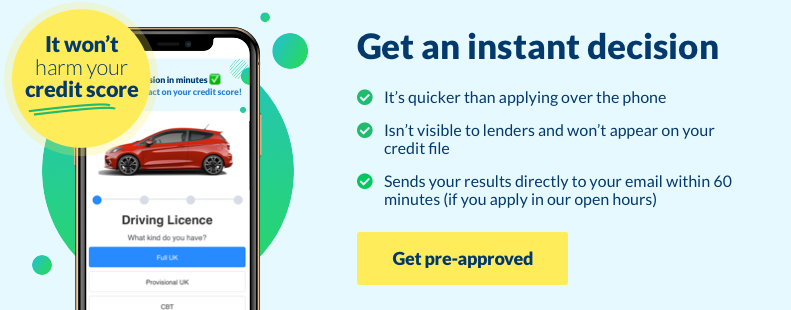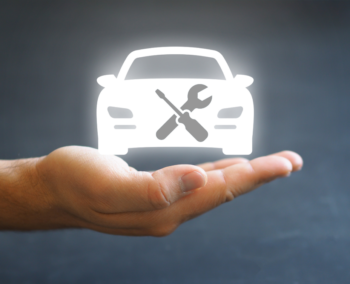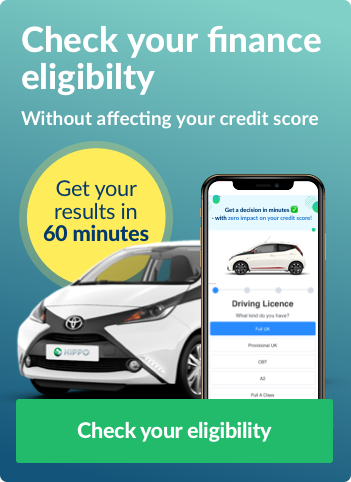
Personal contract purchase (more commonly known as PCP) is one of the most popular ways to spread the cost of financing a car.
What is PCP?
PCP is type of car financing product that allows you to spread the cost of your vehicle over a longer period.
Much like hire purchase, with a PCP deal, you pay fixed monthly instalments until the agreement comes to an end. However, this is where the similarities end, as with a PCP you have more flexibility.
At the end of a PCP contract, you have three choices:
- You can hand the car back
- You can make a lump sum payment (known as a balloon payment) and keep the car
- Or you can use any equity left to put down a deposit on a new car with a new deal (part exchange)
How does PCP work?
PCP may be one of the most popular forms of car finance, but it’s also the most misunderstood. Here’s how it works.
The initial deposit
At the start of your PCP deal, you can choose to put down a deposit. Put down a larger deposit and you won’t have to borrow as much, so there will be lower monthly payments and less interest to pay over the term. If you don’t have a deposit, you can explore no deposit options.
Monthly payments
The monthly repayments you make on a PCP deal cover only the depreciation of the vehicle (the difference between the car’s price when you buy it and the predicted price at the end of the term) plus interest.
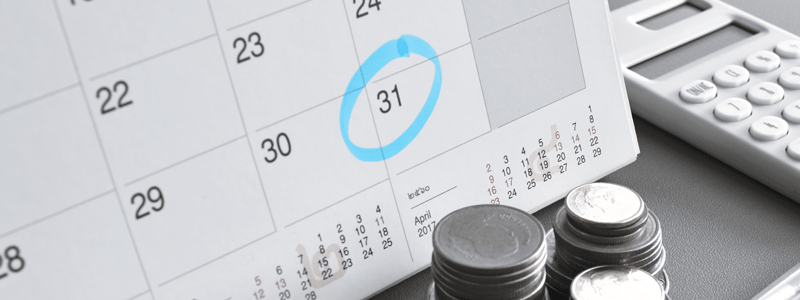
A typical PCP deal runs over three to four years. If you want the option to change your car more regularly, you can choose a 24-month contract – which is likely to have higher monthly payments.
Or, for the lowest possible monthly payments, a five-year contract. Remember, though, the longer your contract runs for, the more interest you’ll pay overall.
Ending the contract
As mentioned, you have a few different options at the end of your PCP deal.
1. Return the car
Providing the car is in good condition and below the mileage limit stated at the start of the contract, you can return the car with nothing to pay.
2. Own the car
At this point, you have an option to purchase the car outright by paying a lump sum – often called the balloon payment – that is based on the value of the car at the end of the contract.
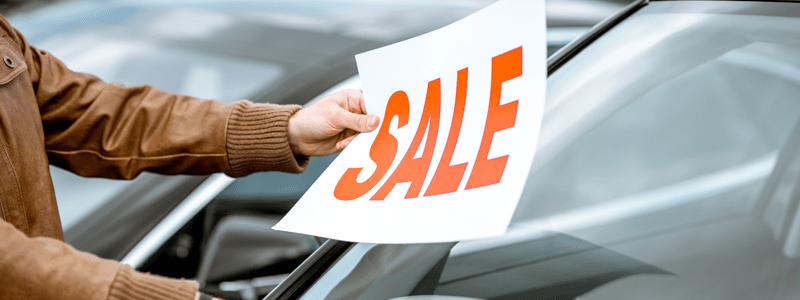
3. Trade in and start a new deal
If the idea of having another new car appeals, you can return the car and start a new agreement. If your car is worth more than was projected, you also have a deposit for the new one, too.
Read: What is part-exchange on a car and is it worth it?
Pros and cons of PCP
There are several pros and cons to taking out a personal contract purchase.
Pros of PCP:
- Typically, lower monthly repayments than some car finance
- Possibility of driving a new car every few years
- Protection against depreciation with an option to hand the car back at the end
- Often less maintenance and running costs, as you have the option of a newer vehicle
Cons of PCP:
- No guarantee of owning the car with high balloon payments at the end of your contract
- Penalties for damage to the car can be high
- Limits on annual mileage and penalties for exceeding them if you hand the car back
Used vs new car PCP
PCP deals are available for both new and used cars, but there are some things to consider before you choose.
If the idea of having a new, modern car every few years for less appeals, then a PCP deal on a new car is a relatively easy way to do this.
It gives you a chance to access newer models with cleaner emissions and up-to-date technology.
With a new car, there are also often more and better offers available.
But, the biggest advantage of taking out PCP for a used car is the lower monthly payments. The biggest drop in value for a used car has already happened, so it essentially depreciates less when you take out your agreement.
However, there are disadvantages taking on an older model too, such as the cost of maintenance and wear and tear that you typically wouldn’t get with a newer car.
One reason many people take out PCP is that it allows you to drive a new car every couple of years – where that normally may not be affordable. As the car ages, that advantage simply decreases.
How to get the best PCP deal
There are a variety of PCP deals out there and the best one for you will depend on your circumstances.
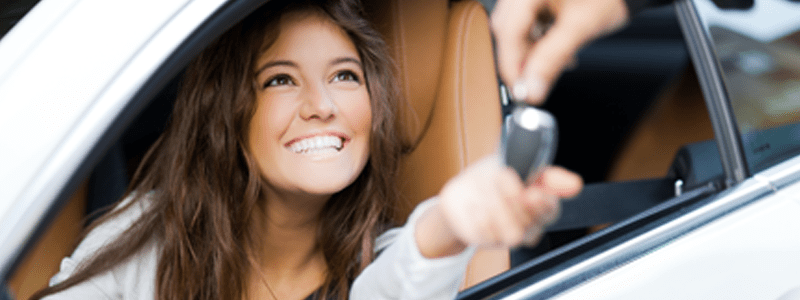
Things to look out for include:
Deposit amounts
Usually, the best offers for these come from the dealership you are going to purchase from. With a deposit contribution or £0 deposit, it could free you up from having to use your savings.
Interest rates
How much interest you pay will depend on the length of the term you choose and your credit score. It’s worth finding out ahead of time how much you’ll pay in total by the end of the deal.
The final payment
Factoring in this cost is important if you’re planning on owning the car at the end of the term. Is the final value of the car realistic?
Restrictions
PCP deals typically come with restrictions, such as mileage limits. It’s important to consider whether you may exceed these, as it can result in extra costs if you choose to hand the car back.
Other options
There are many other ways to buy a car, such as saving up and purchasing outright. Alternative finance options to PCP include:
Hire Purchase (HP)
HP allows you to spread payments for your car over a long period of time (usually two to five years). After putting down a deposit (if you want to make one), you repay the balance plus interest through an agreed term of monthly instalments.
When the agreement comes to an end, the car is signed over to you and you become the legal owner.
Read: What is hire purchase and how does it work?
Personal Contract Hire (PCH)
If you’re not planning on keeping the car at the end of your PCP deal, PCH – also known as leasing – is another option you should consider.
PCH is similar to car rental, but it runs over a longer period of time. You may pay an initial amount and monthly payments thereafter to lease the car for an agreed amount of time. When the contract comes to an end, you can simply hand the car back or lease another car.
Personal loan
With a personal loan, you borrow an agreed amount of money from a lender (typically a bank or building society) then pay it back along with interest in monthly instalments.
The sum is transferred into your bank and you can then effectively treat it as if it were your own cash to purchase a car outright.

How are PCP payments calculated?
PCP payments are based on the expected depreciation (how much value the vehicle loses) from when you buy the car until the end of the contract, minus any deposit you put down, plus interest.
That amount is then spread across monthly instalments over the length of the agreement term.
Let’s look at an example:
Cost of the car: £20,000
Length of PCP deal: 3 years
Deposit paid: £2,000
Remaining balance: £18,000
GMFV: £9,000
In this example, the car is predicted to be worth at least £9,000 after the three-year contract. This is known as the Guaranteed Minimum Future Value (GMFV).
The figure is an estimate of what your car will be worth at the end of the deal and is worked out using market values, mileage and age of the car.
With your remaining balance at £18,000, your monthly payments will spread the £11,000 cost out over the three years (as you only pay the depreciation, so you don’t pay the £9,000 until the end if you want to keep it).
But remember, that also doesn’t include interest.
At the end of the contract, you could pay the remaining £9,000 (GMFV or balloon payment) to keep the car, or alternatively hand the car back or look toward taking out a new PCP deal.
Will I own the car?
When you take out a Personal Contract Purchase agreement, the lender remains the owner of the car until you have paid the balance in full.
Once you have paid all the monthly instalments, you have the option to make a lump sum payment of the final balance. If you choose to do this, you can officially become the legal owner of the car.
Additional products and costs
When considering the affordability of your new car, it’s important to think of other costs that are involved, as well as your monthly repayment. These typically include car tax, insurance, fuel, MOT and repair costs.
Often, however, with a PCP deal, you can find packages that include things like tax and routine servicing for the vehicle.
If you’re going for a new car on PCP, fuel consumption can be also be lower, meaning it’ll be cheaper to run.
However, remember if you exceed the mileage stipulations of your contract or damage the vehicle, you will have to pay penalty fees at the end if you hand the car back.
Cancellations
Financial circumstances can change over the course of a year or two and any number of factors might make it difficult to keep up with your monthly car payments.
A loss of job or income, ill health – all can quickly turn your finances upside down.
In instances like these, it’s possible to cancel your contract by entering into something called a Voluntary Termination Agreement.
However, in order to do this, you must have repaid at least 50% of the full term. If you haven’t, you would have to pay a lump sum to bring your balance up to the halfway point.
If your payments are over half of the total amount payable, then you can walk away, but you wouldn’t be entitled to any money back.
When you enter a Voluntary Termination Agreement, it’s flagged on your credit report, but it doesn’t usually affect your score, so it would be unlikely to cause any issues with borrowing in the future.
Risks of PCP
The main risk with PCP is that that are no guarantees that you’ll own the car when the agreement comes to an end.
If your financial circumstances change for any reason and the balloon payment becomes unaffordable, you can hand the car back or start another PCP deal.
If the payments become unaffordable during the term, you’ll also have to give the car back.
Should the value of the car fall faster than anticipated when you started the agreement, you may, at that point, find yourself in negative equity.
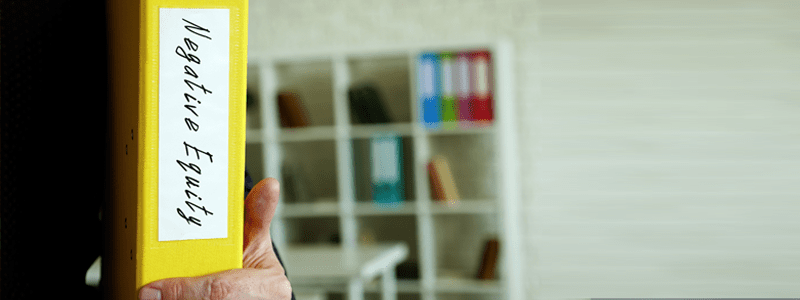
That means, if you’re looking for a new deal, you might have to pay a deposit or add the outstanding finance on to your new agreement – making it more expensive.
In addition, if you exceed any mileage limits or damage the car beyond regular wear and tear, there could be financial penalties if you choose to hand the car back, or you’ll have to pay for any issues to be put right.
Read about the other types of finance that you can consider here:
